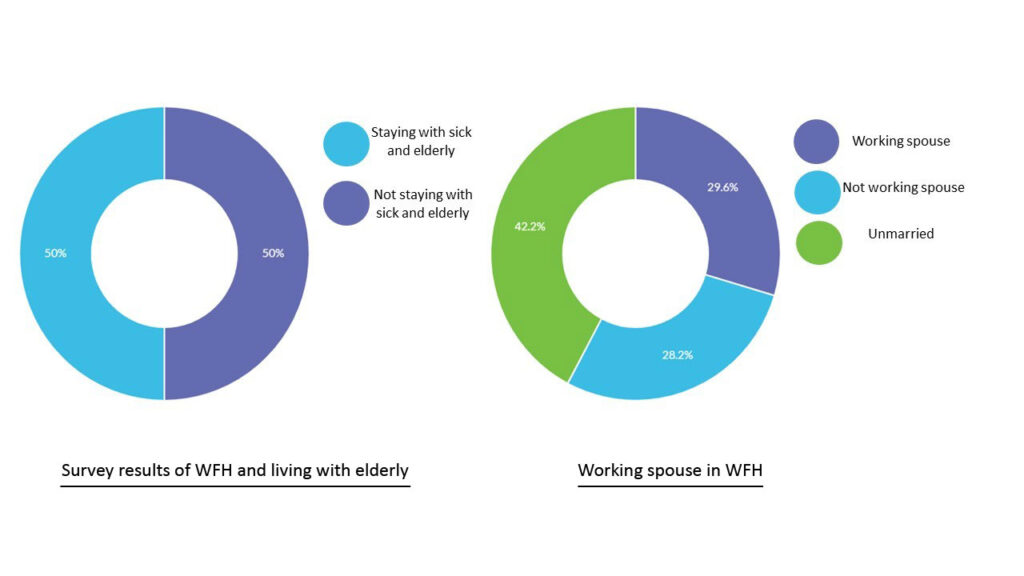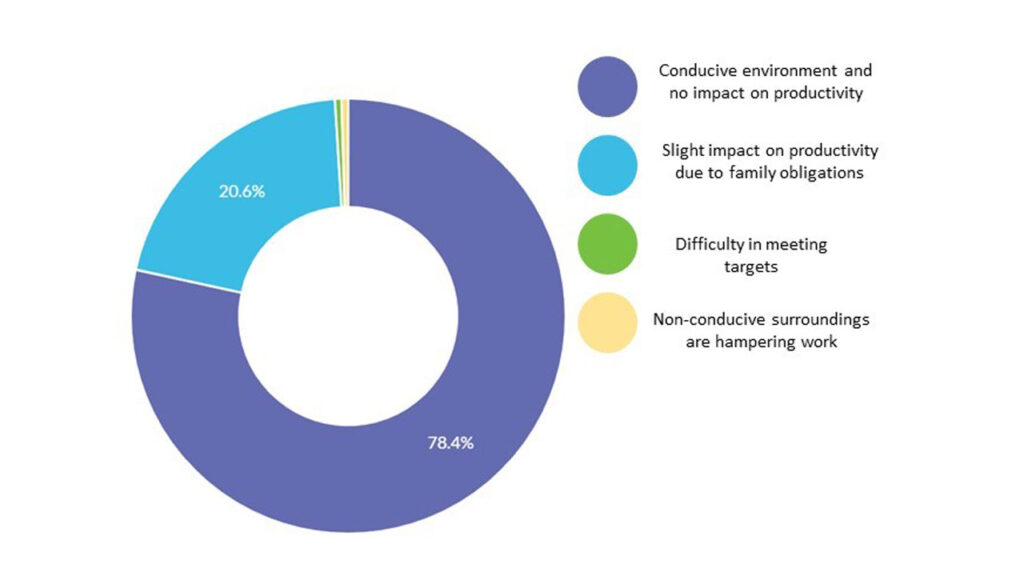“Resolve to be tender with the young, compassionate with the aged, sympathetic with the striving and tolerant with the weak and the wrong. Sometime in your life, you will have been all of these.”
Gautam Buddha
Ever since the COVID-19 outbreak, each and every industry and every profession has suffered its impact. It has been a challenge for every individual to cope with the new norms of living. Resultantly, it has been a huge challenge for all the working professional to continue their work with the same level of focus and enthusiasm. Many of them did not have a conducive surrounding, many did not have a supporting infrastructure. Yet, most of them have been delivering with high productivity.
Is it the regular practice and the daily routine that has made this happen?
A recent study was done by us at Kognitivus Consulting, for a few global IT companies, where we have done an analysis, on how people are actually able to work from home. Among the sample size of nearly 500 people who took up our survey, it was seen that 50% of the participants have been living with the sick and the elderly and among all those who are married, 50% are a working couple. When asked about their stress levels, a significant lot admitted that the current situation (Work from home) has not contributed to their stress levels. The results were a little surprising that despite the stress of pandemic and no house help the employees were able to complete and deliver their tasks on time. Is this because of the employee’s sense of responsibility alone? This might be true to a certain extent, but I feel there may be another reason to this and that is Empathy. Empathy from the organization has played a vital role in smoothening this process. Let us look at few examples below that support this analysis.

Shweta, (All the names have been changed for privacy) an employee of a Telecom company, was facing challenges in the morning hours of weekdays, considering that house help was not allowed in her society during the lockdown. When she discussed the same with her organization, she was given a relaxation of few hours in the morning and which she would compensate in the late evenings. Abhishek, serving in an IT company had network related issues as his residence was in the outskirts of the city. His repeated call drops during meetings was given a consideration without his team exhibiting any irritation towards him. Somesh, who works with a global consulting firm, also stays with his sick parents along with his wife and children. The constant disturbance of coughing sound and the television in his background was handled with maturity by his colleagues and manager asking him to simply stay on mute and unmute only when required.
A lack of empathy in all these cases would have certainly led to lack of motivation that would have eventually impacted productivity too. A sense of feeling that “I am being understood” creates a conducive surrounding.

So, what is Empathy? Simply put, it is what we were taught as part of our childhood lessons (perhaps), as “putting ourselves in other shoes”.
According to Daniel Goleman, who has authored books like emotional Intelligence, working with emotional Intelligence, Social Intelligence, Focus and many others, empathy is “It is understanding the other persons feelings as it were your own.”
Daniel Goleman was Inspired by the work of the psychologist Paul Ekman who had categorized empathy into 3 types.
- Cognitive Empathy: This is simply knowing how the other person feels but you don’t internalize it. E.g.: Suppose your friend has lost a job and you empathize with him
- Emotional Empathy: Emotional empathy is feeling the other persons emotions. You physically feel the other persons emotions.eg. Someone is sick, and you emotionally feel their pain.
- Compassionate Empathy: Here we not only feel for them, but we understand and go a step further and help them if required.eg. In this pandemic, we have seen many kindhearted souls come forward and deal with empathy, despite the looming uncertainty and help the lesser privileged with their needs.
Recently, my child received a 1-page worksheet from his school, which was titled Empathy. This was quite intriguing for me as here the school had sent a simple situation and asked how do you feel and what is the right thing to do? It was heartening to see the school trying to up my child’s emotional quotient from this young age as this will definitely help him when he is ready to be on his own in the world. As per the psychological research it is the Emotional Quotient levels that decides how successful a person is in his life. The most successful people across all spheres have known to have a higher E.Q (Emotional Quotient).
Given the current pandemic we have seen many people reacting with empathy, many have gone out of their way to help in whatever way they can. Be it with emotional support, being virtually available or going that extra mile in helping the underprivileged giving rise to many stories.
So, what is your story of empathy in your professional or personal life?
We would love to hear it, please do use the comment box below to share.



